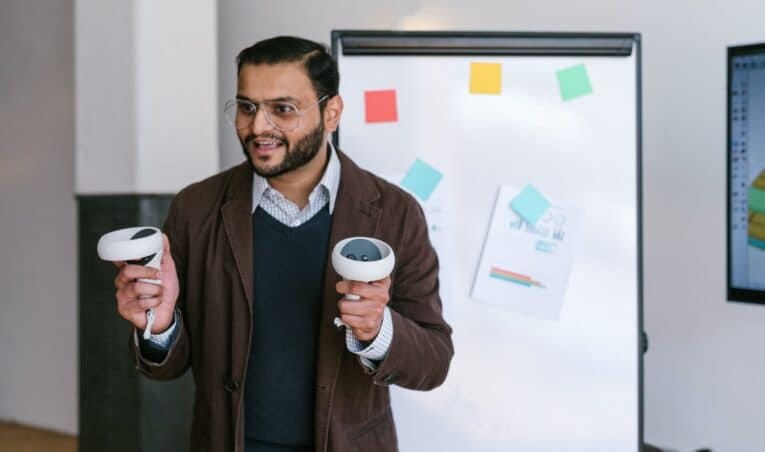
Virtual Reality (VR) is a transformative technology that’s reshaping numerous sectors, including education and training. This immersive technology offers a new dimension to learning and skill development, providing experiences that are more engaging and effective than traditional methods. At Adventure Vault, a leading VR Arcade in Deerfield Beach, South Florida, we’ve witnessed the transformative potential of VR in education and training firsthand.
VR in Education: Immersive Learning Experiences
In the realm of education, VR is a game-changer. It offers immersive learning experiences that captivate students’ attention and make learning more engaging. With VR, abstract concepts can be visualized, historical events can be experienced, and complex systems can be explored in a hands-on manner.
For instance, imagine a history lesson where instead of reading about ancient civilizations, students can virtually walk through them, seeing the architecture, culture, and life as it was during that period. In science classes, students can dive into the microscopic world of cells or explore the vastness of the universe, gaining a deeper understanding and appreciation of the subject matter.
This level of immersion enhances understanding and retention, making learning more effective and enjoyable. It also caters to different learning styles, providing visual, auditory, and kinesthetic learners with experiences that suit their preferred way of learning.
VR in Training: Safe and Realistic Practice
When it comes to training, particularly in high-stakes fields like healthcare, aviation, and engineering, VR offers invaluable benefits. It provides a safe and controlled environment where learners can practice skills, make mistakes, learn from them, and perfect their abilities without any real-world risks or consequences.
For example, medical students can practice complex surgical procedures in a VR environment before they ever perform surgery on a real patient. This not only enhances their skills but also reduces the risk of errors in the operating room. Similarly, pilots can simulate various flight scenarios, including emergency situations, in a VR setting, preparing them for real-world challenges they might face in the cockpit.
Teamwork and Communication Skills
Beyond individual learning and skill development, VR also offers unique opportunities for enhancing teamwork and communication skills. In a VR environment, teams can collaborate to solve problems, navigate challenges, and achieve common goals. These experiences can help improve collaboration and communication skills, which are essential in almost every field of work.
For instance, a VR game that requires a team to work together to navigate a spaceship through various challenges can be a fun and effective team-building exercise. It can help improve team dynamics, enhance problem-solving skills, and foster a sense of camaraderie.
The Future of VR in Education and Training
As VR technology continues to evolve, its applications in education and training are set to expand. With the ability to create realistic, immersive environments, VR offers a unique platform for experiential learning and skill development.
VR in Education: A Deeper Dive
The potential of VR in education extends beyond the classroom. Museums and educational institutions are using VR to create interactive exhibits where visitors can explore art, history, and science in a more engaging way. For example, a visitor could take a virtual tour of an ancient Egyptian tomb or walk on the surface of Mars. This not only makes the visit more enjoyable but also enhances the visitor’s understanding and retention of the information.
Moreover, VR can help cater to different learning styles. Some students learn better by doing rather than listening or reading. VR’s interactive nature makes it an excellent tool for these kinesthetic learners. For example, instead of reading about the laws of physics, students can actually experience them in a VR environment. This can help them understand complex concepts more easily.
VR in Training: Expanding the Horizons
In the field of training, VR’s potential is vast. Industries such as healthcare, aviation, and engineering are already reaping the benefits of VR training. However, the applications of VR in training are not limited to these fields.
In the retail industry, for example, VR can be used to train employees in customer service. Employees can interact with virtual customers, dealing with a variety of scenarios. This can help them develop their communication and problem-solving skills, preparing them for real-world situations.
In the field of construction, VR can be used to train workers in a safe environment. They can learn how to operate heavy machinery or practice safety procedures without the risk of real-world injuries.
Teamwork and Communication Skills: The VR Advantage
VR’s potential in enhancing teamwork and communication skills cannot be overstated. In a VR environment, teams can work together to solve problems or complete tasks. This can help improve team dynamics and foster a sense of camaraderie.
For example, a team could work together to build a virtual structure. Each team member could have a specific role, such as architect, engineer, or builder. They would need to communicate effectively and work together to complete the task. This can help improve their teamwork and communication skills, which are crucial in the workplace.
The Future of VR in Education and Training
As VR technology continues to evolve, its applications in education and training are set to expand. With the ability to create realistic, immersive environments, VR offers a unique platform for experiential learning and skill development.
The Impact of VR on Special Education
Another promising application of VR in education is in the realm of special education. VR can provide unique learning experiences tailored to the needs of students with various disabilities. For instance, students with autism can use VR to practice social interactions in a safe and controlled environment. Similarly, students with physical disabilities can participate in activities that might be difficult or impossible in the real world.
VR for Professional Development
Beyond its use in primary, secondary, and tertiary education, VR also holds promise for professional development. Companies can use VR to provide immersive training experiences for their employees, helping them to develop new skills or refine existing ones. For example, a company could use VR to train its employees on new software, safety procedures, or customer service techniques.
The Role of VR Arcades in Education and Training
VR arcades, like Adventure Vault, play a crucial role in making VR more accessible to the public. While the cost of high-quality VR equipment can be prohibitive for many individuals and institutions, VR arcades provide access to this technology at a fraction of the cost. This allows more people to experience the benefits of VR, whether for education, training, or entertainment.
At Adventure Vault, we’re proud to offer a diverse range of VR experiences suitable for all ages and interests. Whether you’re looking to learn something new, develop your skills, or simply have fun, we invite you to visit us and discover the world of possibilities that VR offers.

